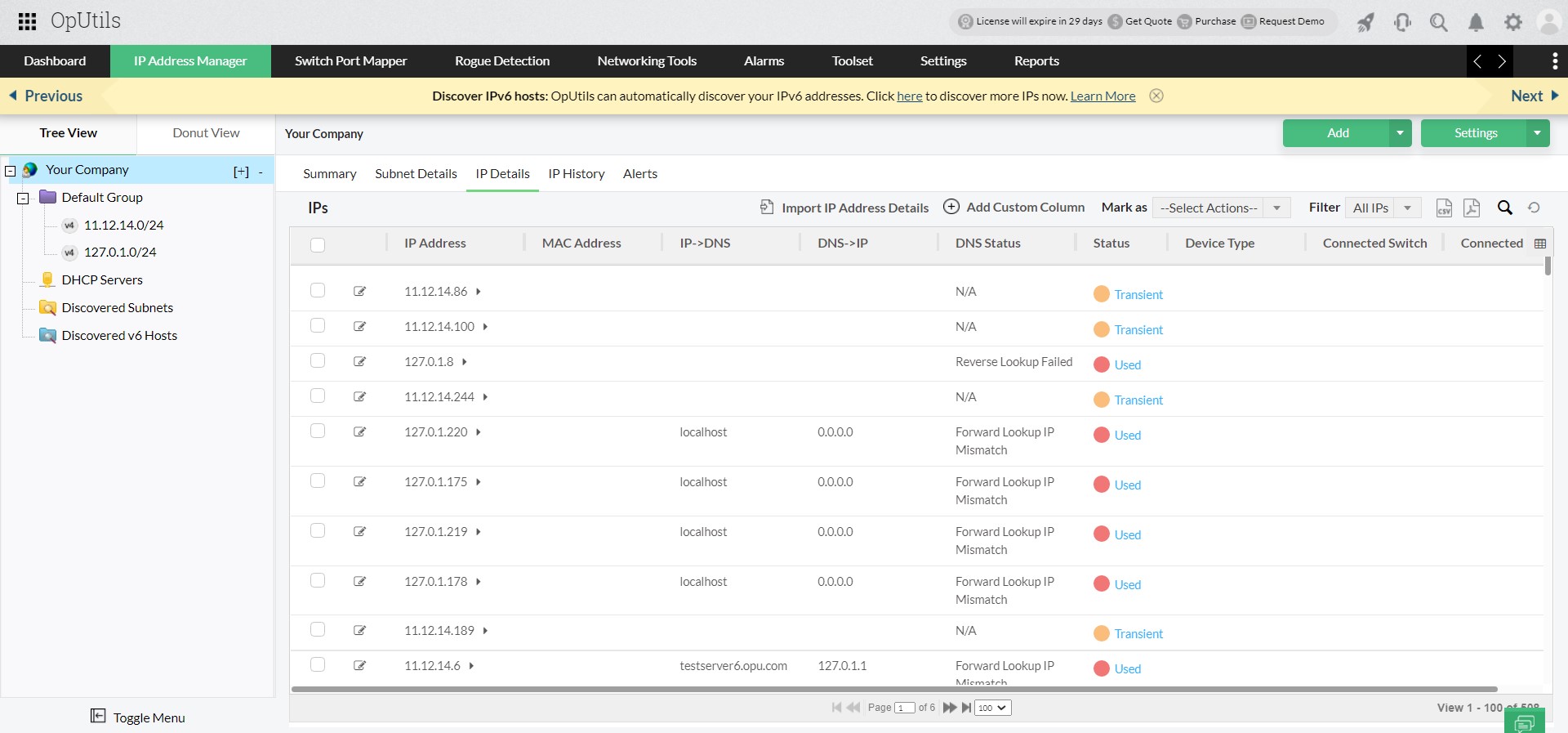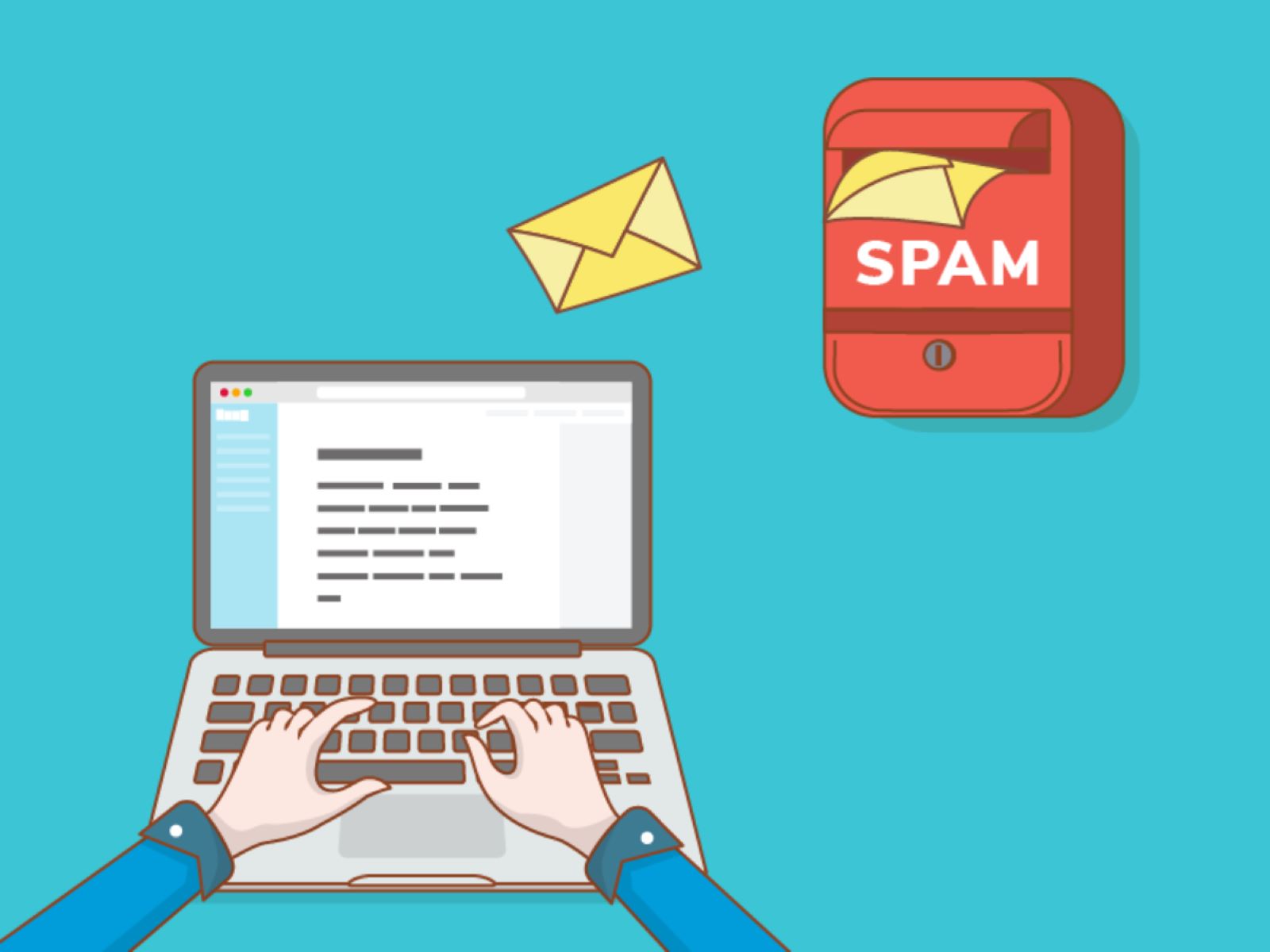Introduction
Email marketing has emerged as a vital tool in the digital marketing world, helping businesses connect with their target audience and drive growth. With the advent of social media and other digital platforms, some may argue that email marketing has taken a backseat. However, the reality is quite the opposite. Email marketing continues to thrive due to its numerous benefits and unmatched ROI (Return on Investment).
In this article, we will delve into the reasons why email marketing is important for businesses of all sizes.
Firstly, email marketing is an incredibly effective way to increase brand awareness. Through targeted email campaigns, businesses can reach a wide audience and showcase their products or services. By consistently appearing in the recipient’s inbox, a company can establish a strong brand presence and maintain top-of-mind awareness.
Secondly, email marketing allows businesses to build and maintain customer relationships. By collecting customer data, such as email addresses and preferences, companies can personalize their email campaigns and deliver content that is relevant to their audience. This personalized approach helps businesses foster long-term relationships with their customers, leading to increased customer loyalty and repeat purchases.
Furthermore, email marketing is a powerful driver of website traffic and sales. By including compelling calls-to-action in email content, businesses can entice recipients to visit their website, explore products or services, and make purchases. Moreover, companies can utilize email marketing to promote special offers, discounts, or new product launches, encouraging recipients to take immediate action.
Additionally, email marketing is a cost-effective marketing strategy. Compared to traditional advertising methods, such as print or TV ads, email marketing campaigns are relatively affordable. With the help of email marketing tools and automation software, businesses can reach a large audience at a fraction of the cost, maximizing their marketing budget.
Email marketing also offers highly targeted and personalized communication. Businesses can segment their email lists based on various criteria, such as demographics, purchase history, or engagement levels. This segmentation enables companies to tailor their messages to specific audiences, ensuring that recipients receive content that aligns with their interests and needs.
Another advantage of email marketing is its trackability. With the help of analytics tools, businesses can monitor the performance of their email campaigns in real-time. They can track open rates, click-through rates, conversion rates, and other key metrics to gain insights into the effectiveness of their marketing efforts. This data allows companies to refine and optimize their email strategies to achieve better results.
Moreover, email marketing increases customer engagement and loyalty. Through personalized and relevant content, businesses can capture the attention of their audience, encourage feedback, and promote active participation. By nurturing these engaged customers, businesses can build stronger relationships and cultivate brand advocates who are more likely to promote their products or services to others.
Last but not least, email marketing enables businesses to reach mobile users effectively. With the growing number of smartphone users, emails can be accessed anytime and anywhere. By adopting responsive email templates, businesses can ensure that their emails are optimized for mobile devices, delivering a seamless and user-friendly experience for mobile users.
Increases Brand Awareness
Effective brand awareness is crucial for businesses seeking to stand out in a competitive market. Email marketing serves as a powerful tool to increase brand awareness by connecting directly with the target audience and consistently showcasing a company’s products or services.
Through strategic email campaigns, businesses can reach a wide audience and establish a strong brand presence. By consistently appearing in the recipient’s inbox, companies can create familiarity and recognition. This repeated exposure helps imprint the brand name in the minds of recipients, making them more likely to remember and recognize the brand when making purchasing decisions.
Furthermore, email marketing allows businesses to reinforce their brand identity. By utilizing consistent branding elements such as logos, color schemes, and fonts, companies can create a cohesive and recognizable brand image. Every email sent becomes an opportunity to showcase the company’s unique personality, values, and offerings, further solidifying brand awareness.
Moreover, email marketing enables businesses to showcase their expertise and thought leadership in the industry. By sending informative and valuable content to their email subscribers, companies can position themselves as trusted authorities in their respective fields. This, in turn, boosts brand credibility and increases the likelihood of being considered when customers are in need of relevant products or services.
In addition, email marketing allows businesses to leverage user-generated content (UGC) as a means to enhance brand awareness. By encouraging subscribers to share their experiences, reviews, or testimonials, companies can tap into the power of social proof. Positive user-generated content acts as a powerful endorsement, attracting new customers and solidifying the reputation of the brand.
Furthermore, email marketing provides opportunities for businesses to collaborate with influencers or industry experts. These collaborations can come in the form of guest articles, interviews, or product features. By associating the brand with well-known figures or respected authorities, companies can leverage the influencer’s existing audience to expand their own reach and increase brand awareness.
Additionally, email marketing allows businesses to segment their email lists based on demographics, interests, or past interactions with the brand. This segmentation enables companies to deliver personalized and targeted content to specific audience segments. By sending relevant offers and recommendations to subscribers based on their preferences, businesses can make a deeper connection with their audience and enhance brand awareness.
Overall, email marketing plays a significant role in increasing brand awareness. By consistently appearing in the recipient’s inbox, creating brand recognition, showcasing expertise, leveraging user-generated content, collaborating with influencers, and personalizing content, businesses can build a strong brand presence and ensure that they are top-of-mind when it comes to customer decision-making.
Builds and Maintains Customer Relationships
Building and maintaining strong customer relationships is essential for the long-term success of any business. Email marketing serves as a valuable tool in achieving this goal by allowing companies to connect directly with their customers and deliver personalized and relevant content.
One of the key benefits of email marketing is the ability to collect customer data, such as email addresses, preferences, and purchase history. By leveraging this information, businesses can segment their email lists and send targeted communications to specific groups of customers. This personalization helps create a sense of exclusivity and shows customers that the company understands their specific needs and interests.
Through regular email communication, businesses can nurture customer relationships by keeping them informed about new products, services, or promotions. By consistently providing valuable and engaging content, companies can position themselves as a trusted resource in their industry. This ongoing interaction helps build a sense of loyalty and fosters long-term relationships with customers.
Email marketing also offers an opportunity for businesses to seek feedback from their customers. By including surveys, polls, or feedback forms in email campaigns, companies can gather valuable insights and opinions. This not only demonstrates that the company values the customer’s input but also allows them to tailor their products or services to better meet customer needs and expectations.
Furthermore, email marketing enables businesses to provide exceptional customer support. By including contact information or links to customer support resources in their emails, companies can ensure that customers have a direct channel to reach out for assistance. Timely and helpful responses to customer inquiries can go a long way in building trust and loyalty.
Moreover, email marketing offers opportunities for businesses to engage with their customers on a more personal level. By sending personalized birthday or anniversary emails, companies can make customers feel valued and appreciated. Additionally, companies can leverage behavioral triggers, such as abandoned cart emails or post-purchase follow-ups, to further engage with customers and provide assistance at key stages of their buying journey.
Another advantage of email marketing in building and maintaining customer relationships is the ability to reactivate dormant or inactive customers. By identifying customers who have not engaged with the brand in a while, businesses can send targeted re-engagement campaigns to win back their attention and encourage them to take action. This proactive approach helps revive relationships and brings valuable customers back into the fold.
Overall, email marketing is a powerful tool for building and maintaining customer relationships. By delivering personalized and relevant content, seeking customer feedback, providing exceptional support, engaging on a personal level, and reactivating inactive customers, businesses can foster loyalty, increase customer satisfaction, and create a strong bond with their audience.
Drives Website Traffic and Sales
Email marketing is a proven strategy for driving website traffic and boosting sales. By incorporating compelling calls-to-action and strategically designed email campaigns, businesses can effectively guide recipients to their websites and encourage them to make purchases.
One of the primary ways email marketing drives website traffic is through the inclusion of links and buttons in the email content. By strategically placing these clickable elements, businesses can direct recipients to specific landing pages, product pages, or promotional offers on their website. This traffic not only increases the chances of conversions but also allows businesses to showcase the full range of their products or services in an engaging and interactive online environment.
Moreover, email marketing allows businesses to promote special offers, discounts, or limited-time deals, enticing recipients to visit their website to take advantage of these exclusive opportunities. By creating a sense of urgency or scarcity in the email content, companies can incentivize recipients to click through to their website and make a purchase before the offer expires.
Furthermore, businesses can leverage email marketing to send targeted follow-up emails to customers who have demonstrated an interest in a particular product or service. These follow-up emails can include personalized recommendations, related products, or upsell opportunities, leading recipients back to the website to explore additional options and potentially make a purchase.
Additionally, email marketing can be instrumental in driving website traffic during seasonal or promotional events. By sending out themed email campaigns, businesses can tap into the excitement and anticipation surrounding these events and create a sense of urgency among recipients. This heightened interest often translates into increased website visits and higher conversion rates.
Email marketing also allows businesses to leverage the power of social sharing. By including social media buttons or incentivizing recipients to share the email content with their networks, companies can broaden their reach and drive more traffic to their website. This word-of-mouth promotion can have a significant impact on generating organic traffic and expanding the customer base.
Furthermore, email marketing enables businesses to retarget website visitors who have not made a purchase. By using website tracking and segmentation capabilities, companies can send personalized emails to these visitors, reminding them of the products or services they viewed and offering incentives to return and complete their purchase. This targeted approach helps re-engage potential customers and drive additional website traffic.
Overall, email marketing is a powerful driver of website traffic and sales. By strategically including links, promoting special offers, sending targeted follow-ups, leveraging seasonal events, encouraging social sharing, and retargeting website visitors, businesses can increase their online visibility, attract more visitors to their website, and ultimately boost conversions and sales.
Cost-Effective Marketing Strategy
Email marketing stands out as a remarkably cost-effective marketing strategy that delivers a high return on investment for businesses of all sizes. Compared to traditional marketing methods, such as print advertising or TV commercials, email marketing offers a significant cost advantage.
One of the primary reasons email marketing is cost-effective is its low overhead costs. With the help of email marketing software and automation tools, businesses can efficiently manage and execute their email campaigns without the need for expensive resources or dedicated personnel. The automation features allow for scheduling, personalization, and segmentation, which streamlines the process and maximizes efficiency.
In addition, email marketing eliminates the costs associated with print materials, such as paper, ink, and postage. Sending emails to a large subscriber base is far more affordable than printing and mailing physical newsletters or promotional materials. With just a few clicks, businesses can reach a wide audience, making email marketing a highly economical choice.
Moreover, email marketing allows businesses to target specific customer segments, resulting in more effective and efficient marketing efforts. By segmenting email lists based on demographics, interests, or purchasing behavior, companies can tailor their messages to the needs and preferences of each segment. This level of personalization ensures that the content resonates with recipients, leading to higher engagement rates and increased conversions.
Furthermore, with email marketing, there is no limit to the number of emails that can be sent. Unlike traditional advertising, where ad space or airtime is limited and comes at a premium cost, email marketing enables businesses to send as many emails as necessary to engage with their audience. This scalability allows companies to reach a larger audience without incurring additional costs.
Additionally, email marketing provides businesses with valuable data and analytics to measure and optimize their campaigns. Email marketing tools provide insights into important metrics such as open rates, click-through rates, and conversion rates. This data enables businesses to track the effectiveness of their campaigns, identify areas for improvement, and make data-driven decisions to enhance their marketing strategies without the need for expensive market research.
Moreover, the ability to automate email marketing campaigns saves businesses significant time and resources. Once set up, automated emails can be triggered by specific customer actions, such as website visits, purchases, or abandoned carts. This automation frees up valuable time and resources that can be allocated to other revenue-generating activities.
Overall, email marketing is a highly cost-effective marketing strategy that offers numerous advantages over traditional marketing methods. With low overhead costs, the ability to target specific customer segments, unlimited reach, valuable data insights, and automation capabilities, businesses can achieve significant cost savings while effectively reaching and engaging their target audience.
Highly Targeted and Personalized Communication
Email marketing provides businesses with the ability to deliver highly targeted and personalized communication to their audience. This level of customization and relevance not only improves engagement rates but also enhances the overall effectiveness of marketing campaigns.
One of the key advantages of email marketing is the ability to segment email lists based on various criteria, such as demographics, interests, or past interactions with the brand. This segmentation allows businesses to send customized messages to specific audience segments, ensuring that recipients receive content that aligns with their preferences and needs. By tailoring the content to each segment, businesses can increase the relevance and effectiveness of their email campaigns.
Moreover, email marketing enables businesses to personalize email content, addressing recipients by their name and incorporating specific details based on their past interactions with the brand. By using dynamic content and merging personalized data into email templates, companies can create a more personalized experience for each recipient. This personal touch not only grabs attention but also creates a sense of connection and rapport with the audience.
In addition, email marketing allows businesses to deliver targeted offers and recommendations based on a customer’s purchasing history or browsing behavior. By analyzing customer data, companies can send emails featuring products or services that are most likely to resonate with each recipient. This targeted approach increases the chances of conversion and drives more meaningful interactions between the business and the customer.
Furthermore, email marketing enables businesses to use behavioral triggers to engage with their audience at the right time. For example, businesses can set up automated emails to be sent when a customer abandons their shopping cart or when a specific action is taken on the website. These behavioral-triggered emails are highly effective in capturing the customer’s attention and driving them back to the website to complete their desired action.
Additionally, personalization in email marketing goes beyond just content. Companies can also personalize the timing and frequency of their emails based on the preferences of each recipient. By allowing subscribers to choose their email frequency or sending emails at optimal times for each recipient’s time zone, businesses can ensure that their messages are delivered when recipients are most likely to engage with them.
Overall, email marketing provides businesses with the opportunity to deliver highly targeted and personalized communication to their audience. By segmenting email lists, personalizing content, delivering targeted offers, utilizing behavioral triggers, and customizing timing and frequency, companies can create a more meaningful and engaging email experience for each recipient, resulting in improved response rates, higher conversions, and stronger customer relationships.
Easy to Track and Measure Results
Email marketing offers businesses the advantage of easily tracking and measuring the results of their campaigns. With robust analytics and reporting tools, businesses can gather valuable data and insights to evaluate the effectiveness of their email marketing efforts.
One of the primary benefits of email marketing is the ability to track email open rates. Email marketing platforms provide data on the percentage of recipients who open the emails, allowing businesses to gauge the initial engagement and interest in their content. This metric provides insight into the effectiveness of subject lines, sender names, and preview text, enabling companies to optimize these elements for maximum impact.
Additionally, email marketing platforms allow businesses to track click-through rates. This metric measures the percentage of recipients who click on links or buttons within the email. By analyzing click-through rates, companies can determine the effectiveness of their call-to-action and content relevancy. This information helps businesses refine their email marketing strategies and optimize the content to drive higher engagement and conversions.
Furthermore, email marketing tools provide valuable insights into conversion rates, tracking the percentage of recipients who take the desired action after engaging with the email. This could be making a purchase, signing up for a webinar, or downloading a resource. By monitoring conversion rates, businesses can measure the success of their email campaigns in achieving the desired goals and objectives.
In addition to tracking individual metrics, email marketing platforms offer comprehensive reporting and analytics features. Companies can access detailed reports that provide a holistic view of email campaign performance. These reports provide data on metrics such as open rates, click-through rates, conversion rates, unsubscribe rates, and more. By analyzing this data, businesses can identify trends, patterns, and areas for improvement in their email marketing strategies.
Moreover, email marketing platforms allow businesses to perform A/B testing. This involves creating multiple versions of an email campaign with slight variations in elements such as subject lines, images, or calls-to-action. By sending these variations to different segments of the audience and comparing the results, companies can determine which elements resonate better with their audience and optimize their future campaigns accordingly.
Additionally, email marketing offers the advantage of tracking revenue generated from email campaigns. By integrating email marketing platforms with e-commerce or CRM systems, businesses can directly attribute sales and revenue to specific email campaigns. This data enables companies to measure the return on investment (ROI) for their email marketing efforts and make informed decisions about resource allocation and future strategies.
Overall, email marketing provides businesses with easy-to-access and comprehensive tracking and measurement capabilities. By monitoring open rates, click-through rates, conversion rates, and revenue generated, businesses can evaluate the success of their email marketing campaigns, identify areas for improvement, and make data-driven decisions to optimize their strategies for better results.
Increases Customer Engagement and Loyalty
Email marketing plays a crucial role in increasing customer engagement and fostering long-term loyalty. By delivering personalized and relevant content, businesses can captivate their audience, encourage active participation, and cultivate a strong bond with their customers.
One of the key benefits of email marketing is the ability to deliver targeted and tailored content to specific customer segments. By segmenting email lists based on demographics, interests, or past interactions with the brand, businesses can send emails that resonate with each individual recipient. This personalized approach makes customers feel valued and understood, increasing their engagement and interest in the brand’s offerings.
Furthermore, email marketing allows businesses to deliver valuable and informative content that nurtures customer relationships. By sharing industry insights, expert tips, or exclusive resources, companies can position themselves as trusted authorities and go-to resources for their customers. This useful content keeps customers engaged and interested in the brand, creating a sense of loyalty.
In addition, email marketing offers opportunities for two-way communication between businesses and their customers. By encouraging feedback, inviting questions, and facilitating conversation, companies can actively engage customers and make them feel involved in the brand’s journey. This interactive communication fosters a sense of community and strengthens the bond between the brand and its customers, leading to increased loyalty.
Moreover, email marketing allows businesses to run engaging and interactive campaigns. By incorporating gamification elements, interactive surveys, or contests into their emails, companies can prompt customers to actively participate and interact with the brand. This not only creates a memorable experience but also generates excitement and boosts customer engagement.
Email marketing also enables businesses to send personalized product recommendations and offers based on a customer’s purchase history or browsing behavior. By providing relevant and targeted recommendations, companies can showcase additional products or services that align with the customer’s interests. This personalized approach enhances the customer experience and encourages repeat purchases, building loyalty over time.
Additionally, email marketing enables businesses to send personalized birthday or anniversary emails to their customers. By acknowledging and celebrating these special occasions, companies can make customers feel appreciated and valued. This gesture of personalization enhances the emotional connection between the brand and the customer, fostering long-term loyalty.
Furthermore, email marketing can be instrumental in re-engaging dormant or inactive customers. By analyzing customer engagement data, businesses can identify customers who have not interacted with the brand recently and send targeted email campaigns to win them back. These re-engagement efforts show customers that they are still valued and encourage them to re-establish their relationship with the brand.
Overall, email marketing is a powerful tool for increasing customer engagement and loyalty. Through personalized and relevant content, interactive campaigns, two-way communication, personalized recommendations, special occasion acknowledgments, and effective re-engagement strategies, businesses can create meaningful connections with their customers, foster loyalty, and cultivate brand advocates who are more likely to promote the brand to others.
Helps Reach Mobile Users
In today’s digital landscape, reaching mobile users is essential for the success of any marketing strategy. Email marketing offers businesses a powerful means to connect with and engage the growing number of mobile users.
One of the key advantages of email marketing for reaching mobile users is the widespread use of smartphones. With the increasing accessibility of mobile devices, people have constant access to their email accounts on the go. By leveraging responsive email design, businesses can ensure that their emails are optimized for mobile devices, providing a seamless and user-friendly experience for mobile users.
Furthermore, email marketing allows businesses to directly reach mobile users through their email inbox, a platform they regularly check throughout the day. By sending emails that are visually appealing, easily scannable, and include concise and engaging content, companies can capture the attention of mobile users and entice them to engage with the email content.
Email marketing also complements other mobile marketing channels. By incorporating mobile-friendly elements such as clickable buttons, easy-to-read text, and optimized images, businesses can seamlessly integrate their email marketing efforts with other mobile channels such as mobile apps or SMS campaigns. This integrated approach ensures consistent messaging and provides a cohesive brand experience for mobile users.
Moreover, email marketing allows businesses to leverage the power of mobile push notifications. By integrating email marketing platforms with mobile app notification services, companies can send push notifications directly to customers’ mobile devices. This approach not only increases the visibility of email campaigns but also allows for instant delivery of time-sensitive messages or offers, maximizing customer engagement and response rates.
Additionally, email marketing enables businesses to have a presence in mobile users’ notification center. When recipients receive an email notification on their mobile device, they are likely to check the email and engage with the content. By providing valuable and relevant content in the email, companies can drive mobile users to take the desired action, whether it’s making a purchase, visiting the website, or interacting with a mobile app.
Furthermore, email marketing offers opportunities for mobile users to easily share email content with their contacts or on social media platforms. By including social sharing buttons in emails, businesses can encourage mobile users to spread the word about their offerings, increasing brand visibility and attracting a wider audience.
Last but not least, with the growing popularity of mobile wallets, email marketing helps businesses tap into mobile users’ purchasing behavior. By incorporating mobile wallet integration into email campaigns, companies can provide convenient and frictionless experiences for mobile users to make purchases directly from their email inbox, eliminating the need for navigating to a separate website or app.
In summary, email marketing is a powerful tool for reaching and engaging mobile users. By optimizing emails for mobile devices, leveraging push notifications, integrating with mobile apps, utilizing mobile-friendly elements, encouraging social sharing, and incorporating mobile wallet integration, businesses can successfully connect with the ever-growing mobile audience and drive engagement and conversions among mobile users.
Conclusion
Email marketing is a crucial component of any successful digital marketing strategy. Its importance cannot be overstated, as it offers a multitude of benefits that contribute to the growth and success of businesses. From increasing brand awareness to driving website traffic and sales, email marketing proves to be a cost-effective and highly targeted means of communication.
By utilizing personalized and relevant content, businesses can build and maintain strong customer relationships, leading to increased customer engagement and loyalty. The ability to track and measure results provides valuable insights into the effectiveness of email campaigns, allowing businesses to optimize their strategies for better outcomes.
Additionally, email marketing helps companies reach the ever-expanding mobile audience by providing optimized and user-friendly experiences for mobile users. The ability to connect with customers directly in their email inbox ensures maximum visibility and engagement.
In conclusion, email marketing is an indispensable tool for businesses seeking to connect with their audience, increase brand visibility, and drive business growth. Its versatility, cost-effectiveness, and ability to deliver highly targeted and personalized communication make it a valuable asset in the digital marketing toolbox. By incorporating email marketing into their overall marketing strategy, businesses can unlock a world of opportunities and achieve remarkable results.

























